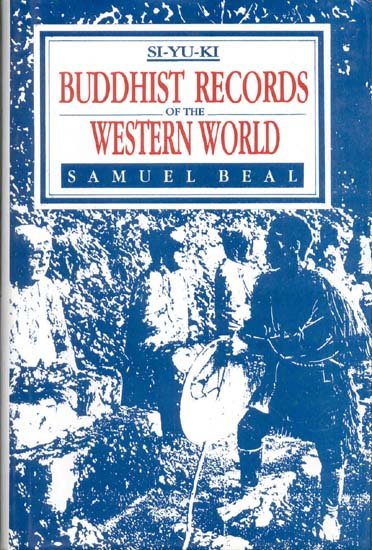The travels of Fa-Hian (400 A.D.)
by Samuel Beal | 1884 | 20,385 words | ISBN-10: 8120811070
This is the English translation of the travel records of Fa-Hian (or, Faxian): a Chinese Buddhist monk who traveled by foot from China to India between A.D. 399 and A.D. 412. The full title is: The travels of Fa-Hian: Buddhist-country-records; By Fa-hian, the Sakya of the Sung (Dynasty) [Date, 400 A.D]. This work is an extract of the book “Buddhi...
Chapter XXIX
Entering the valley and striking the mountains towards the south-east, ascending 15 li we arrive at the hill called Gridhrakuta. Three li from the top is a stone cavern facing the south. Buddha used in this place to sit in meditation. Thirty paces to the north-west is another stone cell in which Ananda practised meditation. The Deva Mara Pisuna, having assumed the form of a vulture, took his place before the cavern and terrified Ananda. Buddha by his spiritual power pierced the rock, and with his outstretched hand patted Ananda’s shoulder. On this his fear was allayed. The traces of the bird and of the hand-hole are still quite plain; on this account the hill is called “The Hill of the Vulture Cave.” In front of the cave is the place where the four Buddhas sat down. Each of the Arhats likewise has a cave where he sat in meditation. Altogether there are several hundreds of these.
Here also, when Buddha was walking to and fro from east to west in front of his cell, Devadatta, from between the northern eminences of the mountain, rolled down athwart his path a stone which wounded Buddha’s toe. The stone is still there. The hall in which Buddha preached has been destroyed; the foundations of the brick walls still exist, however. The peaks of this mountain are picturesque and imposing; it is the loftiest of the five mountains. Fa-Hian having bought flowers, incense, and oil and lamps in the new town, procured the assistance of two aged Bhikshus as guides. Fa-Hian, ascending the Gridhrakuta mountain, offered his flowers and incense and lit his lamps for the night. Being deeply moved, he could scarcely restrain his tears as he said, “Here it was in bygone days Buddha dwelt and delivered the Surangam Sutra. Fa-Hian, not privileged to be horn when Buddha lived, can but gaze on the traces of his presence and the place which he occupied.” Then he recited the Surangama in front of the cave, and remaining there all night, he returned to the new town.
